Target Audience
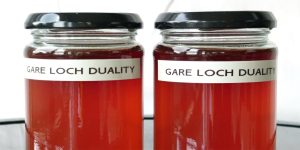
Psychological Impacts of Surveillance: within the context of Gare Loch Duality and the #UndesiredLine
B. D. Owens, David Harper, Darren Ellis (UK)
Multi-disciplinary artist, B. D. Owens, has a conversation with Professor David Harper & Dr Darren Ellis (University of East London) about the psychological impacts of surveillance, within the context of Gare Loch Duality and the #UndesiredLine.
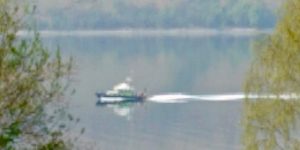
Gare Loch Duality and the #UndesiredLine - Live
B.D. Owens, Donna Holford-Lovell
Two new films by B.D. Owens followed by a live Q&A with the artist and NEoN Director, Donna Holford-Lovell.

Gare Loch Duality and the #UndesiredLine
B.D. Owens, Donna Holford-Lovell
B. D. Owens takes the viewer on an interactive wander through the landscape, artistic process and historical context of his ongoing, multifaceted project Gare Loch Duality and the #UndesiredLine.
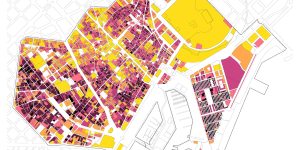
S+T+ARTS Talk: Art & Tech for Urban Resilience
How can artists help to create new collective imaginaries and participatory systems, spaces for reflection and criticism for the future of our cities? How can urban planners and policy makers be inspired by these scenarios and reflections on urban citizenship in the light of digital innovation? Discover the full line-up of this talk.
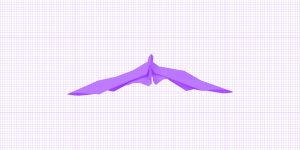
Future Focus – Fragile Worlds II
Victoria Bradbury, Suzy O’Hara, Ayodamola Tanimowo Okunseinde, Irini Papadimitriou, Paolo Cirio
This session builds on a series of provocations and discussion following from the Art Hack Practice series, exploring artistic practices and the role of art at a time of crisis, shifting spaces of production, care and labour in a precarious world.
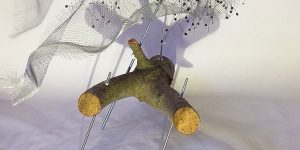
Mutations
The artistic proposal is presented as a curatorial articulation of multiple and heterogeneous work processes, but characterized by mutation. They are processes of works in mutation and on the mutation, like a seismograph of uncertainty. In their various formats, the works will be joined on the website of the UACh Réplica Gallery linked to the Ars Electronica Festival web platform.
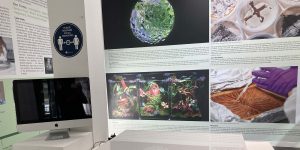
Identifying Successful STARTS Methodologies: Exhibition and Research Project
Pei-Ying Lin (TW), Giulia Tomasello (IT), Jen Keane (UK)
The exhibition presents the activities of the project, four of the eight case studies undertaken, and includes an installation of one of this years STARTS Prize 2020 Honorary Mention, Pei-Ying Lin’s Virophilia (2018-2020), an installation of Future Flora by designer Giulia Tomasello and winner of the STARTS Prize 2018 for Artistic Experimentation, alongside work from designer Jen Keane’s This is Grown project who received an Honorary Mention in 2019.
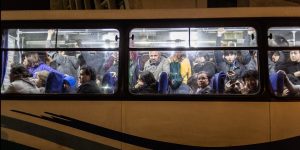
Mutations of the image. The revolt of photography
The first Valdivia International Festival of Photography, Directed by Carlos Fischer, was shaken by the revolt. The photographers changed their workshops on the streets. Lectures mutated. Images too. The abundant photographic material produced during those days in Valdivia, along with the video that reconstructs the convulsed days of the festival, make up an unexpected videogram of the revolt that can be viewed on the online platform of the Replica Gallery associated to UACh's Mutations project.
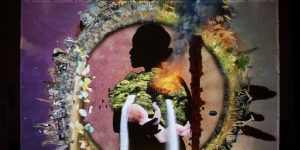
Expanded Animation Symposium at UCA
The symposium Synaesthetic Syntax examines the interactions between animation and audio from a scientific perspective. Researchers and artists were asked to submit contributions on the subject of Synaesthetic Syntax: Sounding Animation/Visualising Audio. This scientific/artistic survey is kicked off by the media artist Rose Bond, who offers insights into her artistic work in public spaces, followed by panel discussions on the topics of "Hearing Color Seeing Sound", "In Front of Your Eyes and Ears", and "The Kinaesthetics of Music and Vision".
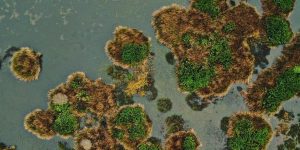
Ecosystem mutations. Wetland Removal.
An 8.5% of the surface area of Los Rios Region in southern Chile is made up of wetlands. Around the city of Valdivia, the presence of wetlands is particularly dense and some areas today are national monuments. A wetland is an ecosystem that is sometimes divided at the surface, but which constitutes a networked ecological continuum. Thus, to alter a part of the wetland is to modify the whole ecosystem. Promoting the convergence of different organizations, the Austral Garden program proposes an aerial route over the geography and natural environment where Universidad Austral de Chile is located. The purpose is that scientists and researchers can share their studies and reflections to spread the importance of wetlands, as well as showing the mutation of this natural eco-system.
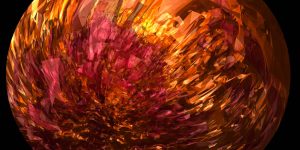
S+T+ARTS at UCA: Understanding complex data in COVID times + Fashion: Materialising Numbers
As a specialist arts institution, UCA is 100% creative. UCA students develop their skills and thinking in environments that replicate the studios found within the creative industries, alongside peers on courses spanning arts, business and technology.Oscar-winning film makers and animators, world-renowned fashion designers, television presenters and Turner-Prize nominees are just some of UCA's high-profile graduates who have enriched the world with their creative talents. Taught and guided by experienced, industry-connected academic staff, students reap the benefits of studying at the highest-ranked creative specialist in the UK.

Leonardo S+T+ARTS: A conversation on "What's next? Art-Science ideas emerging from lockdown."
Camille Baker (CA/UK), Danielle Siembieda (US), Aurelie Delater (FR) and Marie Albert (FR)
During lockdown, Leonardo and STARTS collaborated to exchange and reflect, together with their wider communities, on how COVID-19 is impacting Art-Science/Art-Technology innovation and co-creation.

COSA Connectors Live
Aren Davey, Everest Pipkin, shawné michaelain holloway
The three COSA Connectors will come together in a Livestream to talk about creative open-source software tools. They will discuss the series so far, talk about tools they would like to see created, and how they use the tools for their personal work. We will take questions from the viewers via the live-chat, including questions about using other tools and suggestions for future episodes.
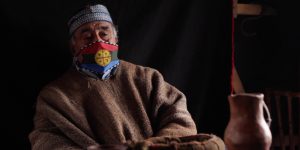
Local mutation imaginaries. Mapuche Culture Workshop.
As part of the celebration of the “Año Nuevo en el Sur” (Southern New Year), the Laboratory of Visual Anthropology of the Museological Direction, is conducting Workshops on Mapuche Culture taught by David Rain Canicura, peumatufe (the authority that guides the direction and decision-making of the community based on dreams) and nguillatufe (the authority responsible for the ceremony of Nguillatun). The proposal of the Mutations program is to generate a pre-recorded workshop that will allow the Mapuche imaginary about mutations to be better understood, as well as the experience of Mapuche communities in the current pandemic.
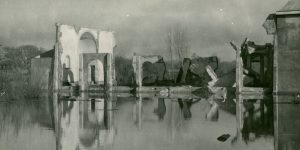
Telluric Mutations. The 1960 earthquake.
On May 22, 2020, 60 years since the largest seismic catastrophe ever recorded in the world was commemorated, a catastrophe whose epicenter was the city of Valdivia. The event had profound landscape, social, economic and cultural consequences for the affected cities and territories. The earthquake was a complex heritage where catastrophe and community resilience converge. The activity of the Austral Garden program is to share the series of initiatives prepared by the Museological Direction of Universidad Austral de Chile.
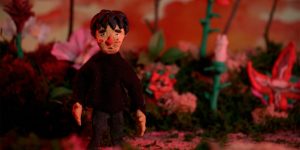
Prix Ars Electronica u19–create your world
This year’s u19 exhibition will invite all winners to exchange ideas and projects with each other. Their “homebase” will be the physical exhibition of the projects, where the winners can explain these to other artists and visitors. They will share their talents and show the audience of Ars Electronica Festival their view of possible future scenarios. In 2019, the Prix Ars Electronica's u19–create your world category was divided into two sections. First, ideas and projects could be submitted to YOUNG CREATIVES (up to age 14). This sub-category impressively demonstrates how children can help shape the present and future from their own perspective. For YOUNG PROFESSIONALS (14 - 19 years), innovative lateral thinkers who have developed an artistic or critical project for the world of tomorrow are in demand.
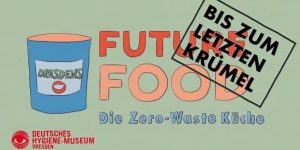
Dresden’s Future Food. Zero Waste Edition – To the Last Crumb
No idea what to do with old bread or the leaves of radish? In three short tutorials, learn how to prepare a delicious starter, main course and dessert by using seasonal and regional ingredients. Part of the Deutsche Hygiene-Museum’s digital “Future Food. What will we eat tomorrow?” program. In cooperation with Commerzbank Foundation.

COSA Connector Tour Part 3
shawné michaelain holloway (US)
Engage with the third of three playlists from our COSA Connectors, exploring open-source tools for artists. We have curated useful selections from across the internet of free software to help you express your creative side. The guided tours will focus on what the tool can do, what kinds of projects you might use it for, and quick tips and tricks for getting started.

COSA Connector Tour Part 2
Aren Davey (US)
Engage with the second of three playlists from our COSA Connectors, exploring open-source tools for artists. We have curated useful selections from across the internet of free software to help you express your creative side. The guided tours will focus on what the tool can do, what kinds of projects you might use it for, and quick tips and tricks for getting started.
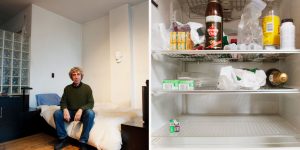
Virtual tour through the exhibition “Future Food. What will we eat tomorrow?”
Visitors can virtually explore the special exhibition Future Food. What will we eat tomorrow? that is held at the Deutsche Hygiene-Museum Dresden from May 2020 to Feb 2021. The exhibition takes up on one of the most urgent questions of the 21st century: how can we create the future of food facing the global challenges?


